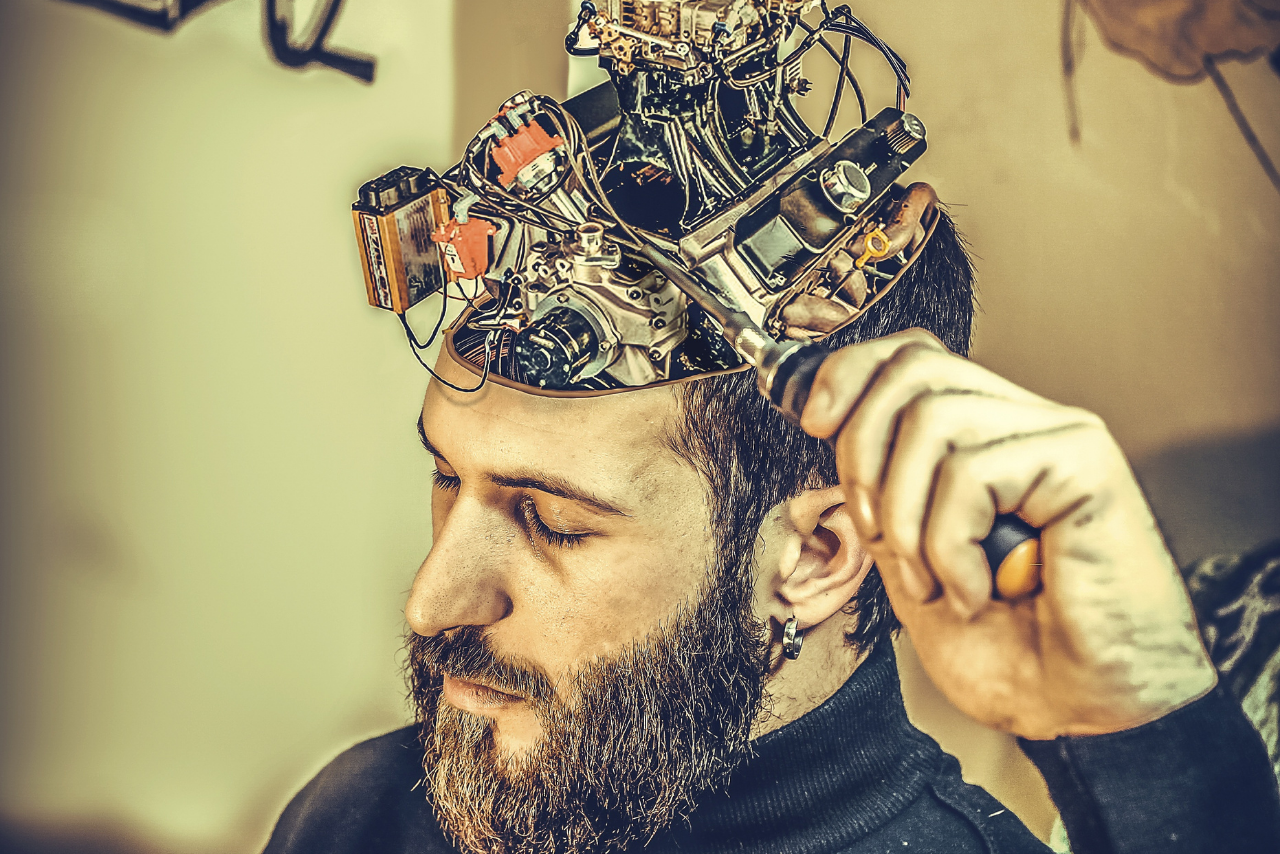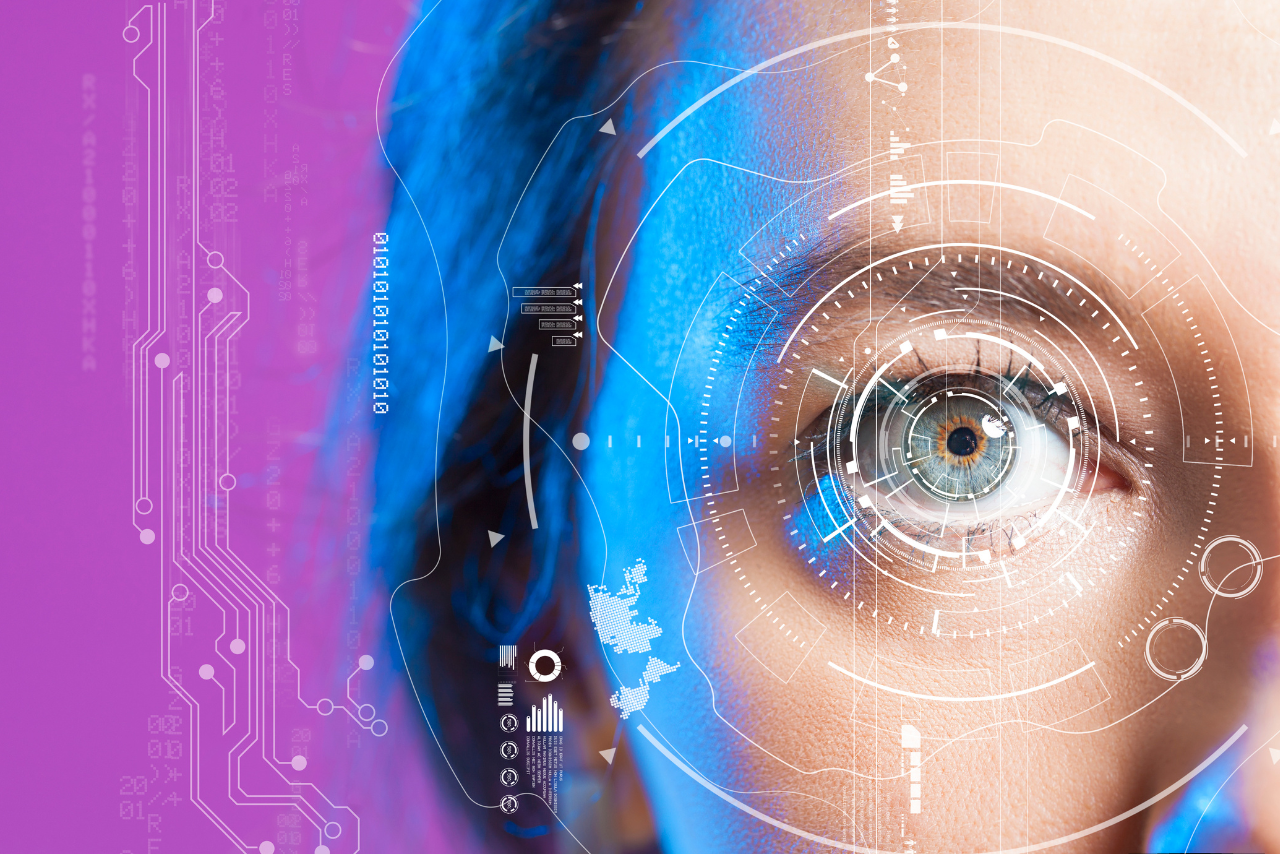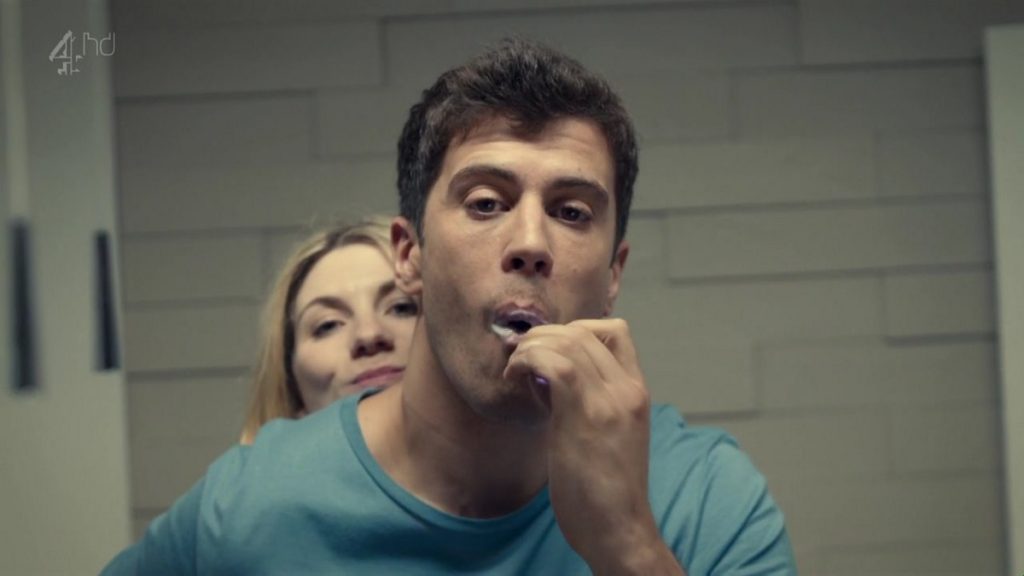Human enhancement ethics. Is human enhancement ethical? How can you asses the impact of human augmentation technologies? Incl. current debate on this topic!
By the way, I have written an extensive article about human enhancement, and also about technologies, and research.
Ethics of human enhancement
I read the book The Ethics of Human Enhancement: understanding the debate. In this video I tell you what I learned from this book. The video is published on my YouTube Channel:
Is human enhancement ethical?
What are the moral and ethical dilemmas that may occur in the advancement in human enhancement technology? For example, is it ethical to be enhanced like soldiers in the movie Elysium (picture above)?
When I give lectures and presentations about human enhancement, I can hardly ignore it. What is ethically and morally responsible when it comes to improving people? Ethics goes beyond laws and regulations. It has more to do with how we behave as citizens, consumers, patients and users (among themselves).
Ethical human enhancement
This is the summary of the article in 5 main points:
#1 Proponents of human enhancement argue that the use of technology is what makes us human.
#2 Critics argue that the use of technology to enhance humans is dangerous, playing God and is not natural.
#3 The most important thinkers and philosophers in this debate are: Julian Savulescu and John Harriss as proponents, and Michael Sandel and Francis Fukuyama as opponents.
#4 Categories to think about the ethics of human enhancement are the individual, professional, and societal level.
#5 Because science and technology will keep progressing, the same applies to ethics. The ethics of human enhancement are not set, but need continuous debate and adjustments.
Structure article
This is the structure of this article:
- Arguments by proponents;
- Opponents and their criticism;
- Categories to think about ethics;
- Conclusion
In the end I share a list with resources, and you can leave a comment.
Explanation human enhancement
Before you start, are you familiar with human enhancement? If not, you can read this article with the definition of human enhancement or watch this video in which I explain the term:
What are arguments of proponents?
Arguments
Let me start with the common denominator of the proponents. The argument that often comes back is that improvement is something that makes us human. As humanity, we have long made the transition from natural selection and random mutations to unnatural selection and involuntary mutations.
A simple example of this phenomenon is healthcare, where I am not even talking about designer babies or embryo selection. Due to the quality of our healthcare, but also the supply of food and infrastructure such as sewerage and water pipes, we are increasingly exercising control over our development as a species. Babies who would not survive in times of hunter-gatherers or even in the Middle Ages, now do so.
We are already living in an era of human improvement
professor Nicholas Agar
This is aptly expressed by New Zealand professor Nicholas Agar: ‘We are already living in an era of human improvement.’ Although he acts against radical improvement in his book, he acknowledges that we are actually already doing it [link at the bottom].
Peter-Paul Verbeek
I would not immediately classify Professor Peter-Paul Verbeek as a warm advocate of human enhancement. But I find his theory of technological mediation worthwhile to include in this part.
According to Verbeek, we often experience a tension relationship when it comes to people and technology, because all frameworks (ethical, philosophical, legal, financial, demographic, etc.) are challenged by technological developments.
Mediation
He argues for thinking beyond the so-called opposition of man versus machine. The boundary between man and machine is becoming thinner. We are putting more and more people into technology. We put more technology in people.
What distinguishes us as humanity from animals is that we supplement ourselves through technology. Technology provides mediation between people and the world, such as clothing (against heat or cold), glasses and contact lenses (to see), a car (to visit places) or the internet (to communicate and look up information). According to him, it is therefore an art to continue to see new relationships between man and machine, as they will emerge even more in the coming years, a form of mediation.
Morality of technology
An essential point that I want to mention is the morality of technology. In 1995 philosopher Hans Achterhuis introduced this concept. The essence is that we as human beings are inclined to outsource moral choices to technology. If we agree that we can take a shorter shower, why don’t we delegate our responsibility to a water-saving shower head?
If you are interested, you can read more about the ethics of technology:
Thinkers
Professor Julian Savulescu and John Harris are among the most outspoken proponents of human enhancement. Next I will share a short profile of their work and ideas.
Julian Savalescu
Julian Savalescu is affiliated with the University of Oxford [link at the bottom]. He is, together with John Harris, one of the best known and most prominent supporters of human enhancement. Savalescu believes that technology is changing our world to such an extent that old morality no longer has any control over it.
He is on the board of the renowned scientific journal Journal of Medical Ethics [link at the bottom]. He has written several books, collections and essays on human enhancement. At the end of 2019 I held a video interview with him [the video is near the end of his profile].
I describe a few of his most striking ideas below.
- Moral improvement
- Human prejudice
- Procreative Beneficence
- Benefits for society
Moral improvement
In the book Unfit for the Future, together with his co-author Ingmar Perrson, he writes about the need for moral improvement [link at the bottom]. Won’t the world be a nicer place if we are all so adjusted that we are a little nicer to each other? A world with fewer wars, fewer psychopaths, more cooperation and more love.
We must dare to face our physical, cognitive, but also moral limitations if we want to deal with the challenges of technological evolution and globalization.
Professor Julian Savulescu
He also marks out our current moral deficit in an interview with Bas Heijne for the series The Perfect Man. In that conversation, Savulescu states that people are limited in different ways. ‘We are not a perfect species that solves every problem. We must dare to face our physical, cognitive, but also moral limitations if we want to deal with the challenges of technological evolution and globalization.’
Human prejudice
Julian Savulescu believes that in debates about bioethics the justification to be restrained is often crooked and normative because of the idea of humanity. ‘As humans, we are convinced that it has special meaning to be human, at least for ourselves.’ He calls this the human prejudice.
In his view, human prejudice is an improper and normative argument. He argues that it obscures the real discussion. Because why is this so-called humanity so important?
Procreative Beneficence
Savulescu believes that we should improve our species wherever we can, even when it comes to parents’ choices about their offspring. In an interview he says: “I want my children to be intelligent, kind and compassionate. That they can control their impulses, but also that they are spontaneous, attractive and healthy. Those are all things that make for a better life and we have to look for that. “
The moral choice to choose the child with the greatest chance of a good life is known as the principle of Procreative Beneficence.
Intrinsic benefits for the individual
This is somewhat in line with the ideas of philosopher Nick Bostrom. In a contribution to the Small Philosophy of the Perfect Man, he finds that there are intrinsic benefits to improving one’s cognitive or physical abilities. You can then enjoy a good book, enjoy great music or find solutions to difficult questions. A free translation of both visions: if you can improve yourself or your offspring, why would you fail to do so?
Benefits society
Finally, Julian Savulescu believes that human enhancement can not only have benefits for individuals, but also for society as a whole. He hereby refers to the research by Linda Gottfredson from 2001 [link at the bottom].
If society’s IQ increases by 3 points, it predicts the following effects:
- 25% less poverty;
- 25% fewer prisoners;
- 28% fewer school-leavers;
- 20% fewer children without parents;
Not only socially, but also economically speaking, cognitive improvement has a positive effect. Each point increase in the IQ leads to an increase of between $55 and $65 billion in economic growth.
Julian Savulescu interview
At the end of 2019, I interviewed Professor Julian Savulescu (University of Oxford) about human enhancement and ethics. He is, certainly in the academic world, one of the foremost thinkers in this field. The video is published on my YouTube Channel:
John Harris
Within the field of human enhancement, the Brit John Harris is one of the most outspoken advocates. In 2010 he published the book Enhancing Evolution where he examines the benefits of human improvement [link at the bottom].
The essence of his argument is that human enhancement is good in itself and that we are obliged to improve ourselves for our posterity. He puts forward two arguments for this. The first is that he believes that improving yourself fits the freedom of every individual. His second argument, in my opinion even more far-reaching, is that our job is to improve ourselves and to enable others to do so. It is our moral duty.
In Enhancing Evolution he writes, among other things: ‘Improvements are so obviously good for us (if they are not, they are not improvements) that it is strange that the idea of improvement has evoked so much suspicion, fear and open hostility and still evokes.”
Case Study: Private school
Harris believes that we as human beings are already doing everything we can to improve ourselves, such as reading books, going to the gym or attending education. In the book The Makeable Man, his perspective is formulated as follows: “Rich people today have the opportunity to send their children to private schools; they may soon have the opportunity to increase the capacity of their brain.”
Harris sees no difference in this, but as far as I am concerned, that is too simply argued. In the case of education, you still have to do your best as a student or student. If technology becomes available that makes you immediately (and effortlessly) much smarter, it leads to effects that extend beyond the individual.
For example, when that technology is expensive and initially only purchased by the well-to-do. With their intelligent lead they earn even more money, after which they can buy other types of upgrades. This leads to a growing inequality that is almost impossible to catch up with.
This counterargument comes back more often in the Opponent section.

What are arguments of opponents?
Criticism of human enhancement
In the scientific and social debate, more opponents of human enhancement can be heard than proponents. Before I zoom in on a number of leading people in this camp, I first describe the arguments that are often put forward. This concerns
- Efficacy (1);
- Emphasis on technology and science (2);
- Perspective on humans (3).
1 Efficacy
Regarding efficacy, many promises are made about the effect of new products, but the scientific evidence is thin. Due to commercial interests, the effects are presented as more rosy than they are in reality.
2 Technofix
Under the heading “technofix” it is expected that science and technology can solve problems. But usually problems are more complex, interconnected and interrelated in a social and cultural context. This is an important argument by Evgeny Mozorov in his book To save everything click here [link at the bottom].
3 Perspective
The basic premise of human enhancement implies indirectly that mankind is self-contained and that it must be improved. Many opponents find that a negative basis for looking at people. After all, it can also mean that you see people as a product that can be improved through purchaseable adjustments and expansions.
Opponents
I continue this part with a description of a number of outspoken opponents of human enhancement, including their main ideas and arguments.
- Francis Fukuyama
- Michael Sandel
- Inez de Beauvort
- David Byrne
- Jürgen Habermass
Francis Fukuyama
The philosopher Francis Fukuyama is one of the most outspoken opponents of human enhancement. He considers the proposal to raise humans to a new level using biotechnology to be “the most dangerous idea in the world.” He expresses these concerns in his book The New Man [link at the bottom].
After describing the technological developments in the first part and describing people in part two, such as human rights and human nature, in the third part he explains how both come together. He raises questions such as: Who decides on the application of newly developed technologies? Should agreements be made about this at national or international level? Can it only be used in healthcare or does everyone have access to it?
What is a good life?
An interesting argument for me is that he states that it is not at all clear what a “good” life is and how you can achieve that with human enhancement technology. He states that human traits are often closely related to other traits. You do not know in advance what effects the adjustment of one property will have on other parts of your body that are connected to it.
In short, the tone in the book is that we must handle new technology with care. He points in particular to the social risks of human enhancement, such as a growing inequality between people who can afford the technologies and those who cannot.

Sandel: nature’s moral status
Professor Michael Sandel is a clear opponent of human enhancement. He focuses on genetics and genetic modification with CRISPR / cas9 and related technologies. He calls these breakthroughs ‘promising and perilous.’ He states that ‘such issues are about the moral status of nature and the correct attitude of man to the given world.’ These questions to theology, which he says ‘contemporary philosophers and political scientists have a tendency to shrink from.’
The case against perfection
In 2004 he wrote an influential opinion article in The Atlantic entitled ‘The case against perfection‘ [link at the bottom]. In this he argues that the essence of life is that we must recognize that we cannot fully control and direct our talents and powers. Despite the efforts we make to develop them. It is also a lesson in humility: accepting that we cannot achieve everything in our lives.
Parents and children
In the case of children, he cites the work of theologian William May. According to May, parents give their children two types of love: acceptance and transformation. Accepting love confirms the nature of the child as it is. Transforming love is about promoting the well-being of the child.
According to Sandell, if we can create future children to our ideal, we run the risk of shifting away from accepting love. While the core of a good life and good upbringing is a balance between both. Being good as you are and at the same time being stimulated to develop as a person.
Talent and humility
This issue, our attitude of man to nature, also touches on another intriguing comment from him. He calls this our concept of giftedness and humility. Giftedness means that our talents and abilities are not entirely our own merit, no matter how much effort we have made to develop and practice them.
This also affects the relationship between self-effort and artificial improvement. From my own life, running is an example. Apart from rowing at a national level for a year, I would hardly call myself an athlete. Nowadays I train 2 or 3 times a week and I regularly participate in running competitions.
My personal record on the 10 kilometers is 43 minutes and 30 seconds. But if I can walk that distance in 15 minutes with a combination of synthetic blood, bionic legs and genetic doping. Without effort. That probably gives me less satisfaction than if I trained hard for it and had to push myself to the limit during the competition.
Appreciation
Sandel’s arguments about talent, humility and effort are also reflected in the aforementioned research with focus groups from the Rathenau Institute. There, “the corruption of meaningful elements in someone’s life” was brought up as a concern. The participants in the study indicate that the effort it takes to deliver a performance also ensures satisfaction and appreciation.
The participants indicate that passing an exam with help feels like cheating. Or that a feeling of happiness caused by technology is not really felt. This also means that for the appreciation of happiness you also need experience with bad times.
Less appreciation argument
Scientist Filippo Santoni of TU Delft calls this the “less appreciation” argument [link at the bottom]. According to him, that is not entirely justified, certainly with regard to current improvement technologies. You can take a pill for better concentration, but you still have to study. You can take doping for more red blood cells, but you still have to climb a mountain on your racing bike.
Ultimately it is all about the approach of the activity. Santoni distinguishes two types: goal and process orientation. If the goal is to climb a mountain as quickly as possible, then it is better to ride a motorcycle than go on a bike. But for many activities, such as sports or studying, the activity itself is central.
Again, I return to a number of previous comments: the context is essential. From the context we can only look closely at ethics. Is it good to use a certain technology? When and when not?
Inez de Beaufort
Inez de Beaufort is professor of medical ethics at the Erasmus University in Rotterdam [link at the bottom]. She brings forward the theory of social infectivity. What if it becomes the social norm to take supplements to improve your cognition. Do you still have the choice not to do it?
During lectures and presentations I often raise this point with a fictional case. Just like the documentary Take your pills described earlier, individual choices change when everyone around you does or does not do something. People in themselves are social and often also competitive, which makes people more inclined to improve themselves.
David Byrne
David Byrne wrote a controversial column in the MIT Technology Review about the rise of technology and the decline of humanity [link at the bottom]. In that document it was mainly about technological progress in the form of digital services, robots in factories and autonomous vehicles. According to him, all these developments limit our human interaction and our human contact.
His proposition is that as homo sapiens we are by definition a social being. We are somewhat unpredictable and benefit from unexpected surprises, happy accidents and unforeseen intuitions.
From that perspective, certain forms of human improvement can lead to less sociality. If the social norm is on the development of rational intelligence (in the form of IQ) then on sociality (in the form of EQ), then this may have an impact on the character of people. As humans, you can become more and more molded, through genetic modification, pharmaceutical interventions or brain implants.
Habermass: next generations
Regardless of philosophical and political views, it is difficult to reach an agreement as to how far we want to go as humans, both nationally and internationally. Even more difficult is that not everyone can participate in this conversation. This argument is put forward by the German philosopher Jürgen Habermas in his book The Future of Human Nature [link at the bottom].
He is a fierce opponent of interventions in human nature, because we would make decisions about future people without them being able to talk about it.
On the other hand, I can argue against this argument that we have always done so as human beings. Previous generations have made choices that we now benefit and suffer from. Consider the installation of sewers and an effect such as the climate crisis.
Case study: DNA editing child
I also explained the choice for future generations during keynotes and webinars. Imagine that your parents can not only know the DNA of your future child, but can also intervene. Would you do that? When it comes to a certain disorder, but also when it concerns matters such as height or intelligence?
Or take this fictional case: if your parents have optimized your genome through musicality. As a child, do you still have autonomy and an open future if you are not interested in playing a musical instrument? How does this technology change the dynamics in families and society?
What is a framework to think about ethics?
Categories
In an opinion piece, Andy Miah of the University of Salford, England, distinguishes three categories:
- Individual;
- Professional;
- Society.
Individual considerations are about the effectiveness of an improvement technology, the idea of an authentic life, caution, the promotion of an open future and morphological freedom.
Professional considerations relate to ethical codes that apply to medical practice and other professional groups that are or will be involved in human enhancement technologies. This can concern both research into a technology and its application.
Social considerations include questions about fairness, justice and equality. This is further elaborated in a large-scale study by Allhof [link at the bottom]. They explore the consequences of human enhancement for honesty, fairness, social structures, law, politics and policy.
The most important conclusion of Allhof and his colleagues is that the context is essential. ‘It seems premature to say that all improvements are morally worrying, regardless of context; but it is also premature to declare them all problem-free.’
Case study of bionic hands
For example, a fictional example of how Miah’s ethical framework can help are bionic limbs, such as an artificial hand. By the way, watch my interview with him down below.
From an individual perspective you would like to have this, because you can play the piano better. At the same time, according to you, that does not affect your identity or authenticity
The doctor who fits the hand for you looks at your question from her professional role. ‘Are you actually willing to give up your natural hand? Do you realize what the consequences are?’ In addition, she does a number of physiological tests to investigate whether you will not suffer any adverse physical consequences of the operation. If you ask if she can mount a bionic hand with a built-in gun, she will refuse and report this to the police
For social reasons, the government decided a few years earlier that bionic hands should be available to everyone. A government institute inspects specimens on the basis of a number of criteria, such as patient safety and the patient’s environment. It is also the policy that you can only decide on this after you turn 18 and that residents with little money can make use of a subsidy fund.
Case: unborn child
The same applies to ultrasound in an unborn child. Professor Peter-Paul Verbeek (University of Twente) told me this in an interview.
The technique of ultrasound scans translates an unborn child into a potential patient, congenital diseases into forms of suffering (which can be prevented), our parents into decision makers about the child’s life.
What is my conclusion?
Technology is never neutral
For that reason, technology is never neutral, although it often seems that way. Techies, scientists, subjects and manufacturers make explicit and implicit choices for us. Take an extreme example: inserting a brain implant to improve your mood. There are a number of moral questions in the design of the implant:
- Can others see that you have turned on the device?
- How much freedom do you have to control?
- Can you always switch on the device fully?
- Can someone else operate the device?
For that reason, I think that ethical and philosophical questions about human enhancement are becoming increasingly important. How do we want to connect ourselves with technology as a human being? What is the extent to which we want to become dependent on technology? To what extent do we want to merge with technology?
Never finished
Yet it does not take away, as Bert-Jan Koops writes that ‘the dividing line between beautiful and ordinary, between illness and personal trait, between healing and improvement is paper thin and changeable.’
That the boundaries change over time and cultural, social and institutional factors also ensures that the ethics of human enhancement remain variable. This is the case every time ethicists, but also we as individuals and as society, think about allowing new applications in the field of human enhancement.
Marli Huijer, a professor of public philosophy, has expressed this nicely in an essay in Trouw [link at the bottom]: “People and technology are constantly changing each other, they are looking together for what is a good or pleasant life, making use of moral, political and social notions that are present in the culture.”
Ethics is never finished.

Want to know more?
Resources
I previously wrote these related articles about human enhancement:
These are relevant books:
- Book The Ethics of human enhancement
These articles deal with the impact and ethical aspects:
- What is technology ethics?
- What is the influence of technology on society?
Ethics section
Please contact me if you have any questions! Like if you want to invite me to give a keynote presentation or webinar at your company, at your congress, symposium or meeting.
What do you think about the ethics of human enhancement? Leave a comment!







This is an intriguing topic that delves into the ethical considerations surrounding human enhancement. Thanks for sharing.